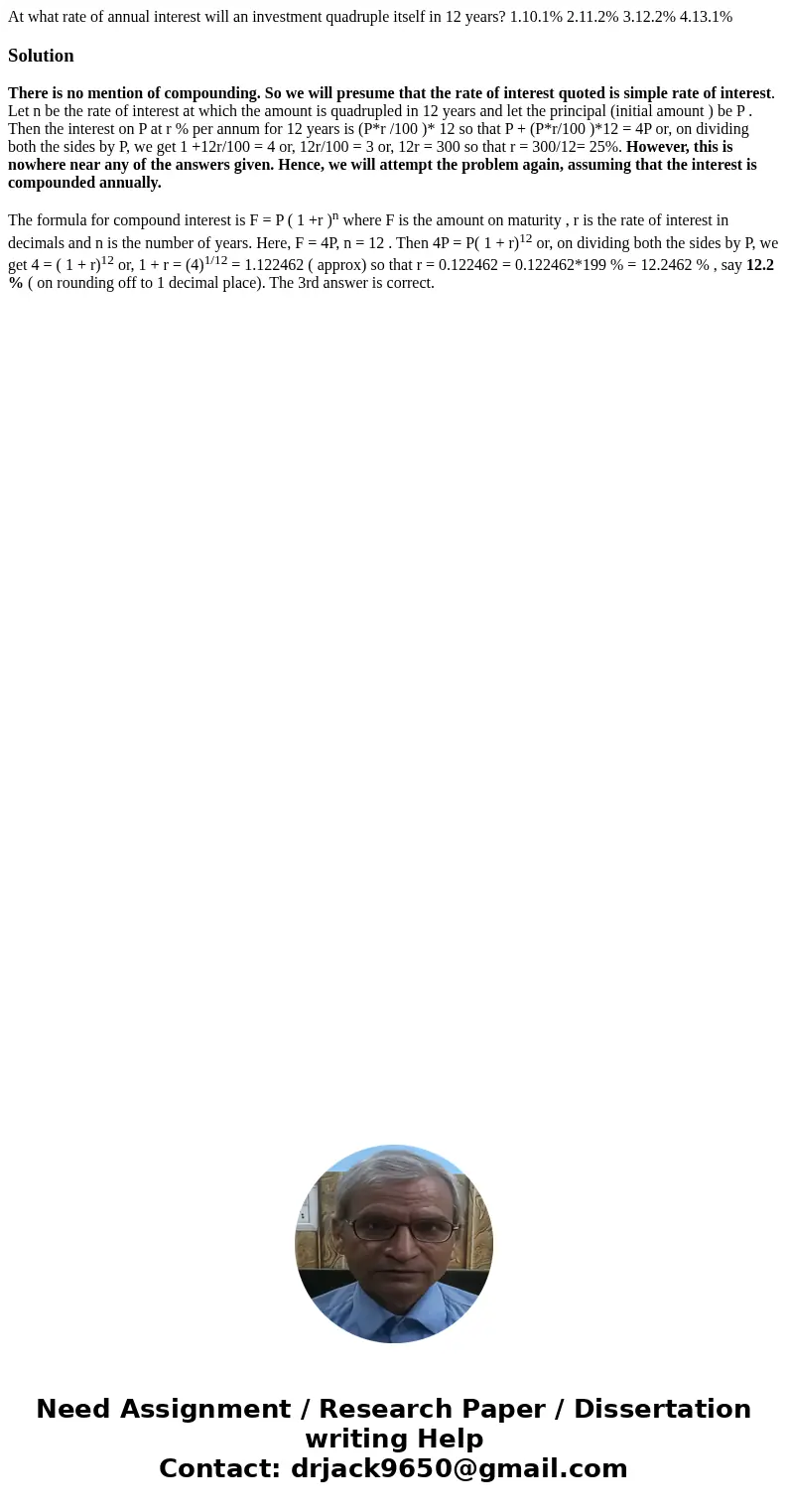At what rate of annual interest will an investment quadruple
Solution
There is no mention of compounding. So we will presume that the rate of interest quoted is simple rate of interest. Let n be the rate of interest at which the amount is quadrupled in 12 years and let the principal (initial amount ) be P . Then the interest on P at r % per annum for 12 years is (P*r /100 )* 12 so that P + (P*r/100 )*12 = 4P or, on dividing both the sides by P, we get 1 +12r/100 = 4 or, 12r/100 = 3 or, 12r = 300 so that r = 300/12= 25%. However, this is nowhere near any of the answers given. Hence, we will attempt the problem again, assuming that the interest is compounded annually.
The formula for compound interest is F = P ( 1 +r )n where F is the amount on maturity , r is the rate of interest in decimals and n is the number of years. Here, F = 4P, n = 12 . Then 4P = P( 1 + r)12 or, on dividing both the sides by P, we get 4 = ( 1 + r)12 or, 1 + r = (4)1/12 = 1.122462 ( approx) so that r = 0.122462 = 0.122462*199 % = 12.2462 % , say 12.2 % ( on rounding off to 1 decimal place). The 3rd answer is correct.

 Homework Sourse
Homework Sourse